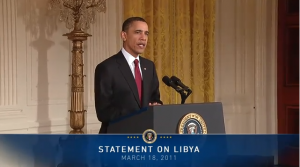
Tim Parks stands out from most expatriate writers on Italy by choosing to write about the daily realities of a life lived among regular people. Lesser writers are enchanted into irrelevance by the cultural, gastronomic and sartorial consumption opportunities afforded to them by the bel paese, but not so Parks, who divines trenchant observations on family, class and modernity from the ephemera of ordinary experience. Given our mutual experiences in the small towns of the Veneto, I was excited to hear that he would be speaking to Milan’s foreign press organization last week.
Despite it being a paid event, Thursday’s talk was not open to the public. I managed to make it by dint of good graces and good luck, but was ultimately disappointed for more than one reason. Parks is noted, perhaps above all, for his work in translation, and has also written 20 works of fiction (which I mention simply because among Italian expatriates they are often overlooked in favor of his four nonfiction works about Italy). He has also penned numerous essays for the New York Review of Books and most recently (April 11), wrote an essay for the New Yorker on the unshakeable disease of berlusconismo that seems to run through the veins of the Italian body politic.
However, Parks’ talents were somewhat constrained by having to stick to the topic of how to write a book. In the Italian title, the verb “realizzare” was used, which is rendered equally poorly by both “write” and “publish” but perhaps that is evidence that it was not well thought out. Parks himself seemed lukewarm on the topic, writing that afternoon on his Facebook page “So, tonight I’m speaking to the Foreign Press in Milan. They want reflections on how to organize writing and publishing a book. It should be about time for me to get some ideas together…” (Original in Italian here.)
I didn’t get the sense that members of the foreign press association had a much better appraisal of the topic. Chatting beforehand, a resident journalist asked me, “so… are you here to learn how to write a book?” with a wry grin. Over the din of several interviews being conducted I tried to tell him that the title reminded me of Glenn Gould’s “So you want to write a fugue?”
So what do we talk about when we talk about writing a book? For all but the most starry-eyed, the advice can only center on agents, publishers, deals, fellowships, teaching opportunities and other practical considerations.
Some of these practical considerations include the problems of writing from outside one’s own culture, and Parks addressed these concerns. It was interesting to hear from the author himself what I had read in the introduction to An Italian Education about how he had come reluctantly to write about living in Italy, and about how his manuscript for Italian Neighbors had been rejected for not being the kind of Tuscan-travel-porn that the British seem to have effortlessly passed on to a certain class of American. (I had not known that he specifically was entreated by an editor to try and ape Peter Mayles’ A Year in Provence, which I will happy admit that I have not read.) Parks made astute observations about knowing one’s audience, drawn from his long experience of writing from a foreign country. He also noted the creative efforts that go into a work of pure nonfiction such as his 2005 examination of the Medici’s banking system, Medici Money, and whether one needs to gather all the appropriate evidence first. (Short answer: no.)
His comments on contemporary writers also reflected his against-the-grain piece on Jonathan Franzen’s Freedom and other literature in Italian translation published in il Sole 24 Ore that same day, where he wrote that it was disheartening that Europeans anoint Franzen simply out of some vague and anxious need to understand America. (Parks asserts that Franzen, for his part, writes about America for some Americans — and with scant regard for non-Americans.) At the talk, he tied in the world’s fascination with Freedom (published in Italy this spring) with the world’s fascination with America – welcome comments on both the state of writing in English in Italy and in the world.
Parks also delved into what the implications of technology are and will be for translation, writing and teaching in the future, noting the power of the Kindle and how his students now can use its built-in dictionary application to immediately look up words. He recalled, not without some nostalgia, the slightly obsessive and entirely necessary habit that learners of foreign languages used to have of scribbling down all unknown words in a notebook or in the margins of the work being translated. He also praised the Kindle for allowing readers to electronically annotate their e-books’ margins. On the business end, he noted the extraordinarily low cost to a publisher of an e-book as compared to the extraordinarily high cost of an actual paper book, not to mention the associated expenses of publicist and agent that an author might be expected to pick up.
I wouldn’t have minded hearing a bit more about the increasing role of technology in the art of translation. Web browsers already come with built-in translation features for most world languages, and their translations, although still inelegant and riddled with errors, are much more reliable than similar programs of a decade ago. The language is often refined by online collaborators, and innovative programs for smartphones that translate text from photos and non-Latin characters are being developed.
By way of answering audience members’ questions about publishers and agents, Parks was able to heave a few shovels of scorn on an out-of-step publishing industry. Such a remark could’ve raised the question of what value publishers add in the days of blogging and e-books. Not every writer can expect self-publishing success like 26-year old vampire writer Amanda Hocking, but with paper publishing costs up and potential gains down as Borders exits the market and remaining mega-retailers Barnes and Noble and Wal-Mart consolidate their market positions, e-books fill more than just a technological void. That publishers offer little more than a brand imprimatur in a world where Amazon controls distribution is obvious. Of course how important that imprimatur really is was subtly underscored by Parks himself when he momentarily confused his own publisher, Harville Secker, an imprint of Random House, with HarperCollins.
One complaint: the event started at six. The only reason I was able to make it was that I had made a massive amount of deadlines earlier in the week and felt like I could reward myself with one evening off. But for most new organizations or even desk jobs, six o’clock in Italy is a bit too early.
Parks was kind enough to stick around and make small talk and hand out advice to those who wanted to hang around afterwards. But a hard week coupled with me trying to squash my body into seats designed for much smaller people (with presumably much bigger posteriors) conspired against my original vision of me swapping notes on the rural Veneto with someone who’s written three books on the subject, and I left, offering only a wave and a thanks with my wallet ten euros lighter. I might have better luck seeking him out in his office in IULM some day.






